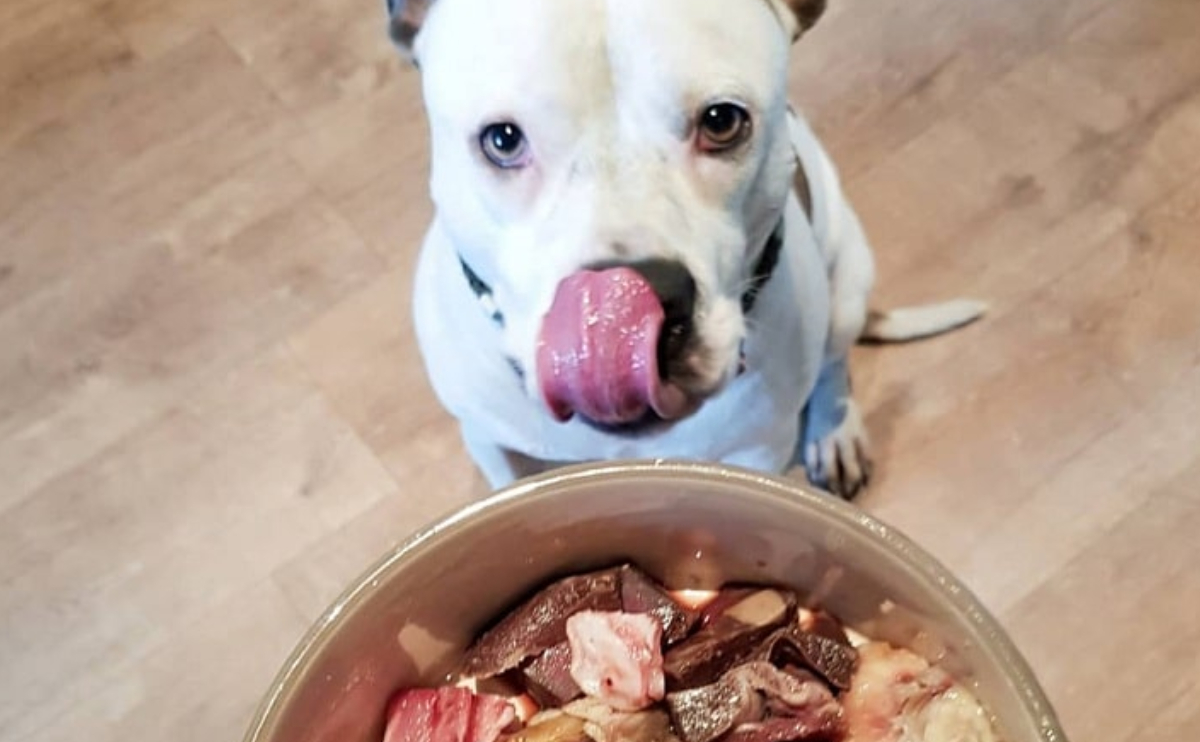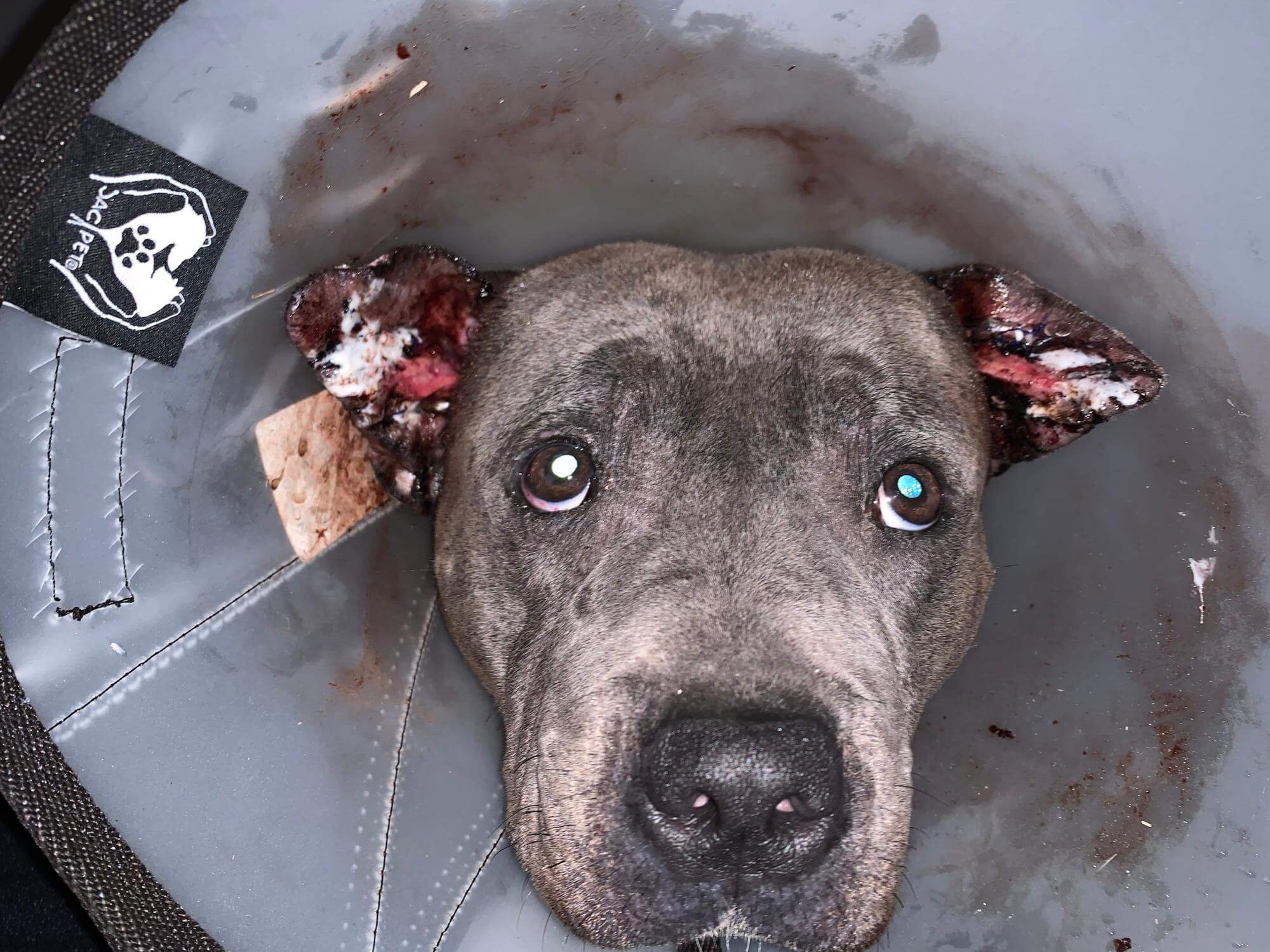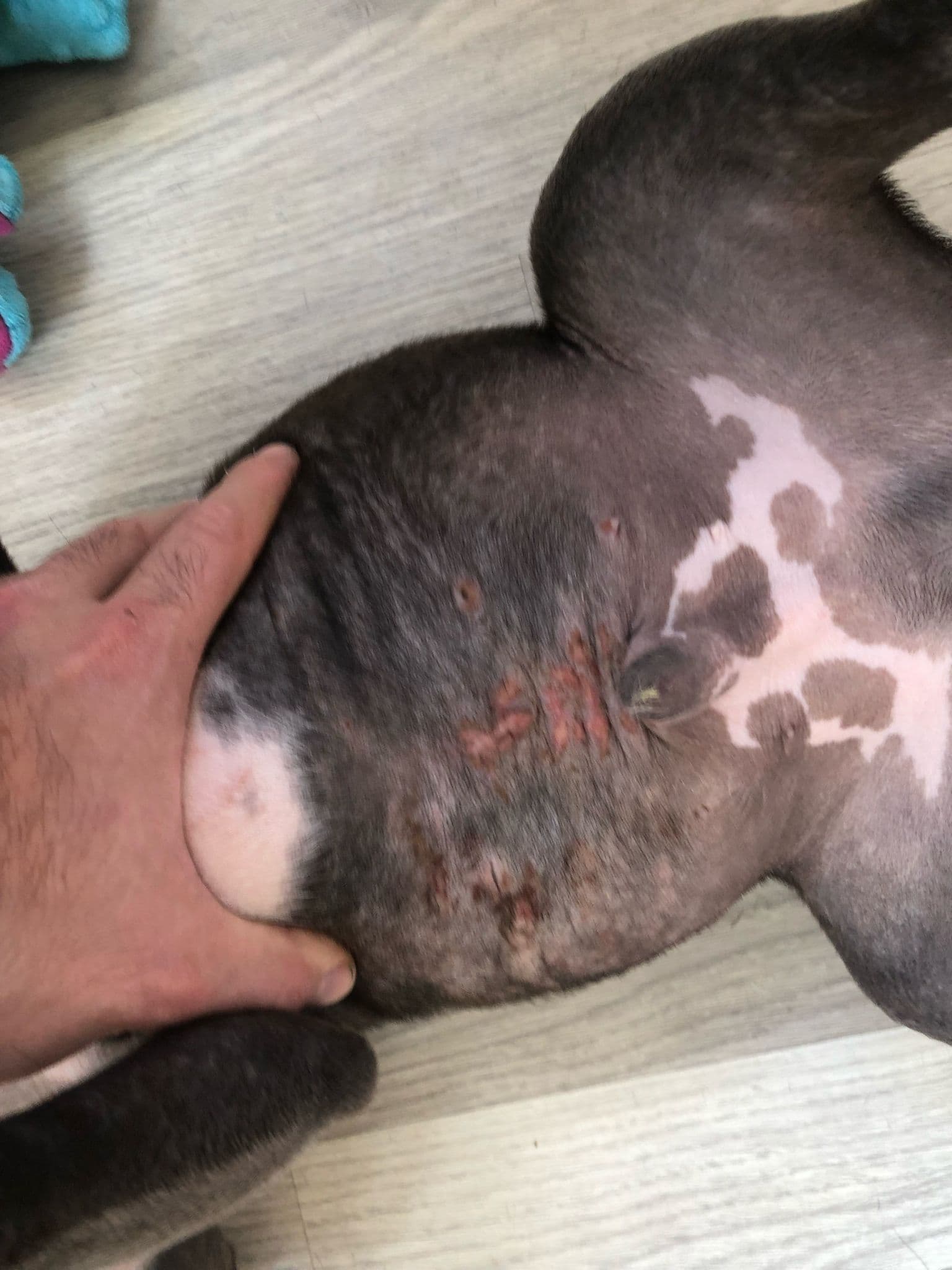Dogs’ digestive systems break down food to produce energy, development, and nutrients required for a strong immune system. Unfortunately, stomach disorders afflict many dogs and are a leading cause of medical visits.
Several factors might lead to the gut health issues in dogs, and the symptoms can be sudden or chronic. Because our dogs cannot articulate their problems, we must always keep an eye out for symptoms that their gut health is worsening.
İçerik Tablosu
Signs of Poor Gut Health in Dogs
The symptoms of poor gut health in dogs are numerous. In addition to obvious symptoms like diarrhea and vomiting, more subtle indicators such as stomach discomfort and tiredness may be present.
While many digestive diseases have similar symptoms, they can have diverse origins and underlying health conditions, making it difficult for pet owners to tell them apart. So, when should we get concerned and seek veterinarian care? Let’s look at some frequent signs and symptoms that your dog’s gut health may be at risk.
- Vomiting or regurgitation
- Decreased appetite
- Weight loss
- Blood or mucus in stool
- Constipation
- Diarrhea
- Abdominal bloating
- Abdominal tenderness
- Excessive drooling
- Increased or new-onset foul-smelling gas
- Thirst
- Reluctance to move or discomfort
- Hunched posture or ‘praying’ position
- Whining or signs of pain when touched
Common Causes of Digestive Disturbances in Dogs
Unfortunately, many common food and lifestyle factors can harm our dogs’ digestive systems. These factors can disturb the gut flora, resulting in illnesses such as leaky gut syndrome.
Low-quality foods, highly processed diets, stress, insufficient exercise, and the long-term use of certain drugs are all significant causes. By being aware of these things, you can help your dog’s digestive health.
Medications
While medications can save lives, they may have adverse consequences on gut health. Many medicines, for example, might cause digestive problems such as diarrhea, constipation, or gut flora imbalances. These adverse effects might harm your dog’s overall health and may necessitate cautious monitoring.
- Acid-reducing medications, especially proton pump inhibitors, can significantly alter the gut microbiota and increase the risk of intestinal infections. Potential side effects associated with these medications include belching, diarrhea, constipation, bloating, and loss of appetite. By reducing stomach acid, these drugs can disrupt the balance of the digestive system, leading to various digestive issues. Additionally, long-term use may change the body’s natural microbial balance, weakening the immune system and making it more susceptible to infections.
- Anti-inflammatory drugs, particularly non-steroidal anti-inflammatory drugs (NSAIDs), are common causes of acute gastric erosion and chronic gastric ulcers. This condition can manifest with symptoms such as vomiting, bloody stool or diarrhea, loss of appetite, excessive drooling, and abdominal pain. Long-term use can also disrupt gut flora, negatively affecting the digestive system. If you notice any of these symptoms in your dog, it’s crucial to contact your veterinarian immediately.
- Antibiotics can lead to rapid and significant decreases in microorganism numbers and diversity, effects that can last for months or even years. Common gastrointestinal side effects include stomach irritation, vomiting, diarrhea, and loss of appetite. To support gut health during antibiotic treatment, consider probiotic supplements or fiber-rich diets. Additionally, following your veterinarian’s recommendations and monitoring your dog’s overall health is important for managing this process.
If you noticed any side affects from your dog’s prescribed drugs, contact your veterinarian right away. Proper care is critical to your dog’s health.
Dietary Irregularities
It’s common for dogs to eat things they shouldn’t. This can include picking up items on the ground while walking, scavenging food from the trash, or eating leftovers from children’s plates.
Such dietary irregularities are among the most prevalent causes of gastrointestinal discomfort in dogs, frequently appearing as diarrhea or vomiting. These symptoms typically resolve on their own within 24 hours. However, depending on what was consumed, immediate medical treatment may be required. As a result, you should always monitor your dog’s eating habits.
Sudden Dietary Changes
In our efforts to provide the best diet for our dogs, we may transition them to a new meal too rapidly, resulting in negative effects for everyone concerned! As pet parents, we must remember that any dietary adjustments we make can have an impact on our dog’s intestinal flora. This is due to different bacteria’s affinity for specific types of food.
For example, certain bacterial species thrive on the high carbohydrate content of commercial dry meals. When these items become the primary source of sustenance, the bacteria multiply. In contrast, a raw food diet rich in complete foods such as fruits, vegetables, and high-quality animal proteins encourages the growth of a different type of bacteria.
As a result, dogs who quickly switch to a new diet, particularly from dry kibble to raw food, may develop bloating, gas, and loose stools. This is connected to the time it takes for the microorganisms in their intestines to adjust to the new food supply. The greatest advise is to make the shift gradually.

Allergies and Intolerances
An increasing number of canines are suffering from digestive problems caused by food intolerances or allergies. These disorders are characterized by symptoms such as diarrhea, vomiting, reflux, and excessive gas.
If you feel that your dog’s digestive difficulties are caused by a food intolerance or allergy, the best course of action is to feed him a single-protein diet for at least 8 weeks. This time frame allows you to pinpoint the problem while also allowing your dog’s gut to recover.
This means you should choose a commercial or homemade diet that has only one animal protein, organ meat, and bones. For example, you could utilize exclusively goat or kangaroo meat. These protein sources are excellent possibilities because they are less allergenic than other sources. By doing so, you can improve your dog’s digestive system and keep them healthy.
You can resolve your dog’s digestive troubles and enhance his or her general health by providing adequate nourishment and attentive attention. Collaborating with your veterinarian during this process is also essential, as professional advice can greatly assist you in keeping your dog healthy.
Stress
Stress can harm our dogs’ health in two ways. According to research, stress (psychological, environmental, and physical) can alter the composition, function, and metabolic activity of the gut microbiota in ways that are harmful to one’s health. Changes may include reduced microbial diversity, increased pathogenic bacteria, the formation of potentially hazardous chemicals, impaired intestinal barrier integrity, and increased systemic inflammation.
To reduce stress, dogs should be given a peaceful environment and mental stimulation through regular exercise and playtime. Working with your veterinarian can help you develop stress-management measures for your dog, which will assist to preserve the health of their digestive system. A healthy gut is vital for your dog’s general health, and stress management is a critical component of that process.
When Should I See a Veterinarian?
Common digestive symptoms such as vomiting, diarrhea, and constipation might be signs of more serious problems such as infectious diseases, intestinal blockages, pancreatitis, adrenal, kidney, and liver disease, or even cancer. Even seemingly minor illnesses might worsen over time if not handled.
As a result, if symptoms last more than a few days, your dog appears to be severely ill, or you are unsure about the cause, obtaining veterinarian care is always the safest option. However, you should visit your veterinarian right away if:
- You have a young puppy or an elderly dog.
- Your dog has a chronic health issue.
- Your dog is showing signs of bloating.
- Vomiting and/or diarrhea persists, or there is blood in the stool.
- Your dog exhibits signs of abdominal pain or tenderness.
- Your dog appears lethargic and/or dehydrated.
These symptoms may suggest that your dog requires immediate medical care. Early diagnosis and treatment are critical for maintaining your dog’s health and may avert serious illnesses. Your veterinarian will assess your dog’s health and devise the most effective treatment strategy. Remember, early intervention is critical to your dog’s health and quality of life.

Simple Ways to Improve Your Dog’s Gut Health
If you have a healthy adult dog with tiny digestive difficulties, here are some basic measures you can use to help and develop their digestive system:
Raw Feeding Diet
Low bacterial diversity in dogs is frequently associated with gastrointestinal dysbiosis, intestinal inflammation, and impaired immunological function. Many studies have found that dogs fed a natural raw food diet have a more diverse and plentiful microbial structure, as well as healthier gastrointestinal functions, than those fed commercial dry food. These findings are consistent with many previous research that show the benefits of raw feeding for our dogs.
If your dog is currently fed just dry food, gradually moving them to a partial or total raw food diet will be a significant step toward improving their gut and overall health. A raw food diet benefits your dog’s digestive system, gut health, and immunological function.
However, it is critical to use caution when transitioning to a raw food diet. Planning this process with your veterinarian will aid in the development of a feeding regimen tailored to your dog’s specific requirements. Additionally, following to cleanliness procedures in raw food diets is critical to avoiding possible germs.
Probiotics
Research clearly demonstrates the critical significance of probiotics (also known as “good bacteria”) in health. While all dogs contain beneficial bacteria in their digestive systems, this balance can occasionally be upset. A daily probiotic supplement can help your dog’s health in the following ways.
- Improving Intestinal Wall Integrity: Probiotics make the intestinal wall less permeable (or ‘leaky’).
- Reducing Inflammation: Since inflammation underlies many diseases, probiotics support overall health by reducing inflammation.
- Stimulating the Immune System: Probiotics enhance the body’s defense mechanisms by stimulating the immune system.
- Defending Against Pathogenic Bacteria: Good bacteria protect the body from harmful pathogens.
- Restoring Balance of Good and Bad Bacteria: Probiotics help restore the balance of good and bad bacteria in the digestive system.
- Reducing Diarrhea Associated with Antibiotic Use and Inflammatory Bowel Disease: Probiotics contribute to reducing such diarrhea.
- Improving Nutrient Absorption: Probiotics enhance the absorption of nutrients, improving overall nutritional status.
- Enhancing Digestive Function and Intestinal Regularity: They improve digestive functions and intestinal regularity.
- Improving Bad Breath: Probiotics help reduce bad breath, thereby improving oral health.
Prebiotics
Prebiotics are dietary fibers that are selectively fermented by healthy bacteria in your dog’s gut. This fermentation process produces substances known as short-chain fatty acids, which are extremely beneficial to your dog’s digestive and immunological health. Prebiotics work as a food supply for bacteria, supporting the growth of good bacteria while also preventing the proliferation of pathogenic species.






Most Read Articles
How to Stop Your English Staff Puppy Chewing Things
English Staffies can be wonderful family companions due to their loving and loyal nature. This...
Nov
Fungal Infections in Dogs: Symptoms and Psychological Effects
Fungal infections in dogs can have a serious influence on their health. In this post,...
Sep
English Staffordshire Bull Terrier Adoption Guide
Adopting the English Staff breed, which is considered one of the most faithful companions for...
Sep